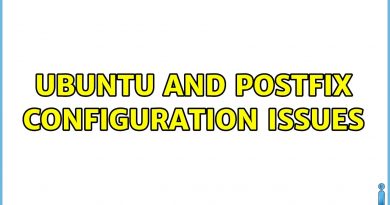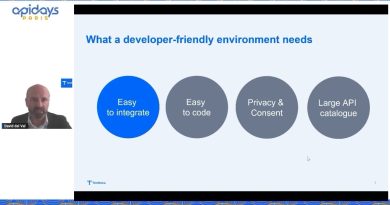Companies are leaving the cloud?
Article we are discussing: https://world.hey.com/dhh/the-big-cloud-exit-faq-20274010
We reacted to this article on stream. Friday’s 11 am EST.
Shoutout to @rishabincloud for joining.
Join this channel to get access to perks:
https://www.youtube.com/channel/UCbjgKwnWnGG7sKCPTRgrFcw/join
0:00 Introduction
Resources:
– Cloud Diagrams: https://payhip.com/madebygps
– Learn Linux Bash for Free https://aka.ms/bashforbeginners
– Learn the Fundamentals of Cloud: https://learntocloud.guide
– 6-month cloud study plan: https://www.madebygps.com/cloudcamp/
– For note taking, I use Notion: https://affiliate.notion.so/madebygps
– Donate: https://www.buymeacoffee.com/madebygps
– Equipment I use https://www.madebygps.com/gear
Socials:
– GitHub: https://github.com/madebygps
– Twitter: https://twitter.com/madebygps
– Tiktok: https://tiktok.com/@madebygps
– Instagram: https://instagram.com/madebygps
– LinkedIn: https://linkedin.com/in/madebygps
– Discord: https://discord.gg/nxcGpYQpw4
If you’re reading this, please leave a like and comment for the algorithm!
#cloud #microsoft #azure #aws #gcp #tech #engineering
by GPS
linux foundation




The big problem with the cloud is most of the decision to migrate is made by business people who just want to migrate because their golf buddy also moved.
Thank You !!! ,
Wait until companies find out all their confidential company data is being sold/hacked to others…..
Hey GPS, I really enjoy your content and advice for breaking through to the cloud. I'm currently an Active Directory engineer and I would love to get your thoughts on AZ-800 & 801 and if these certs can be a good transition to a more cloud based role. Keep up the good work! I really appreciate all of your advice
Buying Dell servers doesn't lock you in to Dell.
You MUST know that, come on… I just moved a datacenter from Cisco UCS to Dell VxRails – didn't matter, they didn't even run the same type of hypervisor (which would have made the whole thing a breeze).
You can't migrate Azure <-> AWS <-> GCP very easily, you can absolutely move from Dell to HPE or Lenovo or whatever – no issues.
yall will never allow to own one computer,come on
The made their situation now they must deal with it. Shout out to 36 Signals!
In the end you have to look at your tradeoffs on increase of capex vs opex and how you would balance your teams around the inevitable upgrades/failures of software, hardware, and facility. I have been on both sides where it made sense to be in the cloud or on premise/hybrid.
Notice this is happening after the biggest on prem software ever created in vmware was sold. They are going to make so much money off of the migration back to on prem. Did Dell make the right decision to sale? It's a huge bet against leaving the cloud vs further adoption.
People can't afford to pay a business every single month. More so when the price keeps going up and up for features the company is not even using but forced to pay.
Cloud Repatriation?
The best way to use the cloud is NOT to lift and shift your entire datacentre because its not like moving house!!
The cloud has great value if you know how to take advantage of its services. In my opinion the best solution is a hybrid setup of your entire datacentre. Using the cloud for BACKUPS, dISASTER RECOVER, BUSINESS CONTINUITY, FILESERVERS SYNC SERVICE AND WEB APPS might be the best mix of on-premises and cloud structure.
I think the Dell comment is fair but also if designed correctly those compute nodes shouldn’t make a difference who they come from.
Compute, storage and network should be commodity if you have that design principle then it doesn’t matter if it’s HPE, Dell, Lenovo etc.
I think the important part is independence does mean you have control but it also means you are now in charge of a lot more, you have to keep the lights on, you have to update, you have to protect your data etc. (you have to protect data in the cloud as well)
i see this happening as well, a lot of companies just finding to expensive in the public cloud. where i am from its because they lift and shifted, they didn't re-architect for the cloud – so yeah its more expensive than it needs to be.
I'll never be 100% cloud or on-prem. There are use cases for either and I'm always suspicious of anyone who strongly advocates for one or the other. For instance, I'm happy for a generic out of the box finance system with little to no customisation can run SaaS or cloud hosted. An OT control system for running industrial processes I would almost always run on-prem.
The world is complex, problems are complex and simplistic solutions often fall short. There are so many things to consider, like performance, business continuity, integration, data protection, security, scalability etc etc, so any one single methodology is not going to have all the answers. So what I do is look at the workload or business problem, think about how it fits into a customer's overall architecture and build a solution accordingly.
What this means is that the overwhelming majority of my customers run a hybrid architecture and it mostly works.
I came across this same article and thought it was interesting. I do think upper management often does promote the cloud as savings in some area. If its labor, hardwaredatacenter costs or whatever. They have the past precloud numbers and see the monthly cloud bills so they know. Believe a lot of it is just optics. If they are saying we are saving money and can sell that idea, that is all that is they need. I dont care either way, I will just keep on building skills.
This is why the traditional sysadmin role will really never truly die. It has evolved but on-prem will never truly vanish. I work in the defense industry as both a Sr. Tech / RHEL Admin as there are still a lot of stuff that will never move to the cloud esp legacy applications. There will always be a need to run some services on prem esp anything that's more data sensitive. Most business today are still Hybrid not fully cloud. AWS is very expensive to run large workloads.
Cloud is not going anywhere.
If you have read more of the article it covers it. Under Did you factor in what it costs to replace your servers later?
he spent $600,000 buying a ton of new servers and wants to get at least 5 years of service out of it and calculated the cost over 5 years. So they are using planning for the long term. For data center costs they probably have one in Chicago or in the state of Illinois
so, it probably not insanely expensive, and they do not need an expense one due to compliance reasons.
So is there any point learning the cloud at all? I’ve only just started getting into it.
My company exec actually though Azure would manage our servers because we migrated them to Azure.
but I have found that the work load actually increased.
Just starting to learn cloud and now this 😂. What is there to learn than? AI
Dropbox is another company that moved off the cloud. They started with AWS but outgrown AWS thus had to build there own Data Centers.
gg
I say it all the time. Everyone loves the cloud. Until they get that bill. The ultimate benefit of the cloud is flexibility, not cost savings. All the cool kids were doing it so everyone did 'Monkey see, Monkey do' and are now realizing they should never have pushed to the cloud, at least in the way they did.
I've just started to learn cloud / devops. Should I continue or not 🙁
the cloud is projected to grow by like 5x by 2030. Some companies will go away from cloud, as it does make sense sometimes. But generally, the cloud is coming, and it'll be here to stay. Buy in while you can.
Nonetheless, developing your tech/IT skill set will make you valuable regardless of wherever the infrastructure goes.
Simple as that.
If cloud becomes cheaper, guess who's coming back!
Time to switch careers!
That's why I've focused on networking. Be it cloud or on-premises, youre going to have an in-demand skill.
Fomo can be costly indeed.
Business chiefs and strategic architects need to actually do the planning and analysis on what works for their corps and customers…not chasing the shiny or doing what others are doing.
For job seekers, Linux will still be a great entry point into any market.
Linux doesn't care who owns what or where nor the scale or scope.
Thank you for providing all of the great info you provide!!!
2:00 vendor lockin with servers isn't really a thing if you are in a hypervisor environment. Now you can definitely argue that you can get locked in with VMware however. Another part is the majority of the talent you would find to support your infrastructure is likely familiar with DELL(or HP) hardware and VMware's enterprise offerings.
When the movement to cloud first started all of the vendors touted massive savings from not having to pay for a data center and all of its equipment to being able to get rid of people in IT.
My company (medium sized, 4-5K empolyees, mostly retail employees in just a few states) held out moving to the cloud, only going to O/M365 4 years ago. Then moving our website to Azure a few years later and now lots of Synapse in the cloud for analytics.
Our data center is still here, same with our DR site. They were never huge, with 2 dozen VMware hosts in each running a few hundred VM's. Yes, there are fewer server VM's as we have gotten rid of Exchange, file servers, IIS servers (website) and some SQL servers. We were able to buy less SAN recently because of lower storage needs and deduplication in the SAN Technology, but the overall SAN cost savings was tiny.
Our Microsoft costs have tripled since the move to the cloud and that is just the O/M365 costs. 5 months of our Synapse/Azure costs pays for the 3 year EA /M365 costs, it is so expensive. Yes we have had Azure audits by billing experts to curb some of those costs, but they are still crazy high. Add to that we have had to actually expand our IT staff, and put lots of us through Azure/M365 training because now we have the on-prem to take care of, and the cloud stuff as well.
Other vendor software is starting to force us to move to the cloud as they are killing off their on-prem solutions, like Kronos which we are big user of, even though we only have like 3-4 Server VM's running it. I have no doubt their cloud solution will be 2X what their on-prem solution costs.
If I was starting a new company, then sure the cloud is for sure the way to go, especially for anything smaller than my company. For a large company that will probably never get rid of their data centers, for legal reasons, or other, I am not sure how much $$$$$$ sense it makes.
I'd want to see the originally TBA who sold them the package.
Like what did that cost benefit analysis (over time) REALLY lol In relation to hardware and all its CAPEX.
I dead azz, wanna see those original CBA.
lmfao..Then they were probably UPSELLING dafuq out of the contract,
having them buy useless services and packages. and NOT optimizing its monthly bill.
*Yes, the 'money people' very rarely well-informed in how cloud services are billed. *
Cloud makes sense for companies with constant/steady growth. stagnation will yield in cloud bill always eating away at profits.
Like you stated serverless isnt a mandatory thing to make an application run proficient..
Its a marketing ploy to have you thinking you NEED cloud, to service your clients.
Most software companies, arent in that range. lol
Hilarious
I would leave this company immediately and find alternative employment – backwards thinking and management that don't learn and stuck in their ways. I wonder how much Dell gave them a discount on the first set of servers to keep the dying giant relevant
Let's all just become software engineers and forget the cloud!
As a former Verizon network engineer, and then having done cloud engineering for 2 other companies..
yeah I KNEW this shyt was coming, cuz the monthly bills would be OUTRAGEOUS, and always billed as 'oh,
well WE handle 'maintenance and upgrades'.
Ok great but often the end user is NOT SEEING any of that #1
#2 they would still need an in-house cloud engineer
#3 depending on the contract you have, often your wouldn't get expedient tech support service (as they all claim)
So yeah< THIS WAS COMING! lol no shock here at all.
I read this article, and I love the movement! Repatriation, and lean cloud !